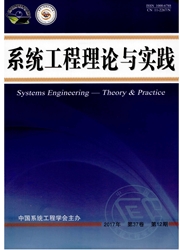

 中文摘要:
中文摘要:
停车换乘是有效缓解城市交通拥堵的交通需求管理措施之一,而换乘停车费用的合理设置是影响其实施效果的关键因素之一.本文以轨道交通和快速路构成的单中心线性城市为对象,提出了一个双层规划模型来描述停车换乘条件下换乘停车费用的优化问题.其中,上层问题从交通管理者的角度出发,以系统总阻抗最小为目标优化换乘停车费用;下层问题描述不同换乘停车费用设置方案下出行者基于随机用户平衡的路径选择行为.基于灵敏度分析方法,分别设计了Frank-Wolfe和BFGS算法求解提出的双层规划模型.采用数值算例验证了提出的模型和算法的有效性.研究发现,不合理的换乘停车费用设置可能会使得交通系统总体性能更差,而提出的换乘停车费用优化方法则可以有效地提升停车换乘系统的实施效果.
 英文摘要:
英文摘要:
Park and ride is an effective measure of travel demand management to reduce traffic congestion in urban areas. However, reasonable setting of parking fee is one of the key factors that influence the performance of park and ride facilities. In this paper, a hi-level programming model was proposed to formulate parking fee optimization problem in a linear monocentric city, which is connected by a railway and a highway, and is with park and ride facilities. The upper level problem, from the viewpoint of traffic managers, aims to minimize the total travel cost by optimizing the parking fee of the park and ride facilities in the corridor, and the lower level problem is to depict travelers' route choice behavior based on stochastic user equilibrium theory under different parking fee schemes. Based on the sensitivity analysis method, Frank-Wolfe and BFGS algorithms were proposed to solve the proposed bi-level programming model. Numerical examples are presented to illustrate the model application and show the effectiveness of the solution method. Our results showed that unreasonable setting of parking fee can lead to poor performance of the park and ride network. However, the proposed optimization method can effectively improve the performance of the park and ride system.
 同期刊论文项目
同期刊论文项目
 同项目期刊论文
同项目期刊论文
 期刊信息
期刊信息
